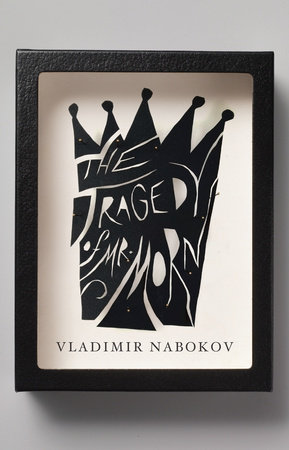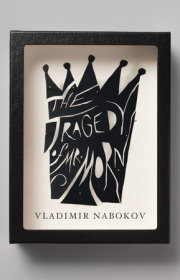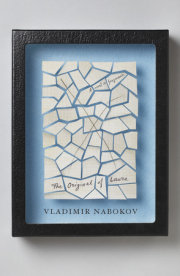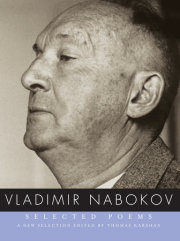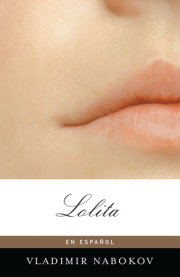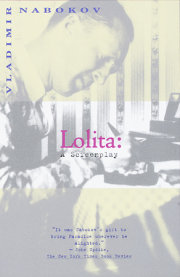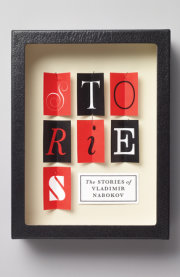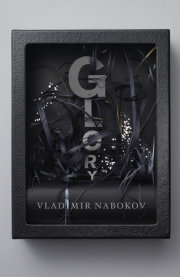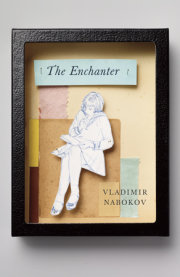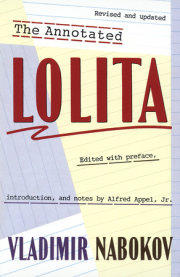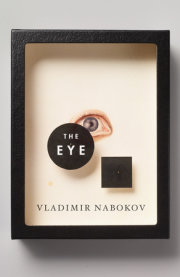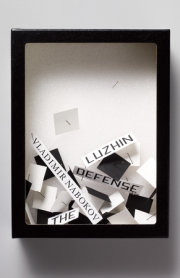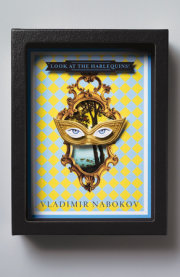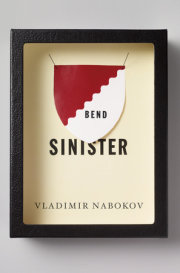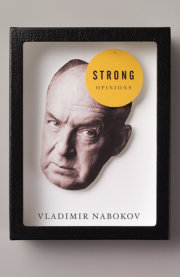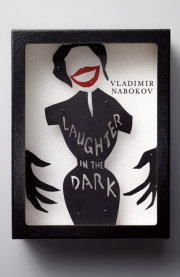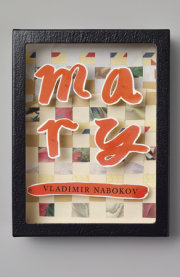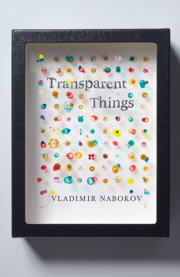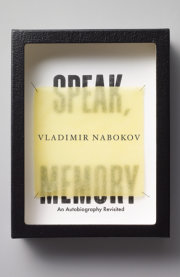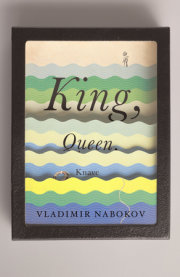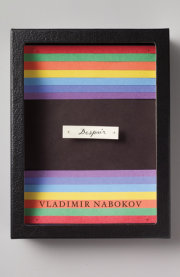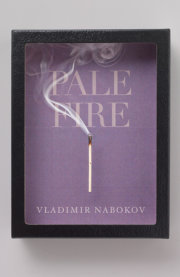Excerpted from the Hardcover Edition
Introduction
The Tragedy of Mister Morn was Vladimir Nabokov’s first major work, and the laboratory in which he discovered and tested many of the themes he would subsequently develop in the next fifty-odd years: the elusiveness of happiness; the creative and destructive playfulness of the imagination; courage, cowardice, and loyalty; the truth of masks; the struggle of freedom and order for possession of the soul; the sovereignty of desire and illicit passion; and what one character calls ‘that likeness which exists / between truth and high fantasy’ (I.ii.59–60), a likeness under whose inspiration Nabokov would take reality, fancy, art, and impossibility, and twist them together into the four-dimensional knots of Lolita, Pale Fire, and his other great novels.
Yet Morn, which Nabokov wrote in Prague in the winter of 1923 to 1924, when he was only twenty-four years old, was never performed or published in his lifetime, though several readings of the play did take place in Berlin, then Nabokov’s home, in the spring of 1923. The opportunities in Berlin for staging a Russian play by a nearly unknown writer were limited, and publication cannot have seemed financially attractive to the émigré publishing houses that would later print Nabokov’s novels. In America, and then in Switzerland, Nabokov translated most of his Russian fiction, but not his early plays, and when he died, in 1977, the typescript and fair copy of Morn still lay dormant in his personal archive in Montreux. Then, in 1997, Zvezda, a Russian literary journal, published the complete Russian text of Morn; and in 2008 the play finally became available to a wider (Russian-reading) audience when a revised version of the text was published in book form by Azbuka Press of St Petersburg. These publications have in turn made possible this current edition – the first translation of Morn into English.
While Morn is in many respects the seedbed for Nabokov’s major novels, there are also elements in it which are fascinatingly unlike anything in his later work, and which reflect issues in Nabokov’s life at the time of writing. Most prominent of these is revolution. Nabokov came from a distinguished liberal family in St Petersburg: his father, V. D. Nabokov, had been one of the ministers in the short-lived Kerensky government which ruled between the fall of the Tsar and the ascent to power of Lenin and the Bolsheviks in 1917. That year, the Nabokov family fled St Petersburg, first for Yalta, then for London, and, eventually, Berlin – where the young Nabokov would rejoin them in 1922, after completing his degree at Cambridge. Even in Berlin, however, the Nabokov family was not safe from the extremist ideologies of right and left which had vied for power in Russia after the failure of the liberal centre, and on 28 March 1922 Nabokov’s father was shot dead by a Monarchist assassin who was in fact aiming not at him but at another émigré politician.
Nabokov’s hatred of the Soviet regime is directly expressed in much of his writing, most prominently his novels Invitation to a Beheading (1935/6) and Bend Sinister (1947). But he would never again write anywhere nearly so directly about the moment of revolution itself, or so probingly about ideology, as he did in Morn. In the play’s two main revolutionaries, Tremens and Klian, Nabokov depicts a politics and poetics of nihilism which, it is implied, was the driving force behind the Russian Revolution. In this Nabokov was refining a critique of revolutionary ideology which can be traced back as far as Turgenev’s Fathers and Sons (1862) and Dostoevsky’s The Possessed (1872). He would articulate this critique again in his last, and greatest, Russian novel, The Gift (1937/8), whose fourth chapter is a mocking biography of Nikolai Chernyshevsky – the revolutionary thinker of the 1860s who was the object of Turgenev’s and Dostoevsky’s conservative critiques, and would become Lenin’s hero. But in Morn Nabokov explores more fully and explicitly than he ever would again what he saw as the origins of the revolutionary impulse in a death-instinct and passion for destruction. When Ganus, who had once been a revolutionary, returns from exile and discovers the happiness that the masked King has brought to the kingdom, he asks Tremens why he is not now satisfied. Tremens pours scorn on him. Neither happiness nor equality is Tremens’s purpose, he explains; rather, he is seeking to imitate the violent destructiveness of life itself, which ‘rushes headlong / into ash, [and] destroys everything in its way’ (I.i.287–8). ‘Everything,’ Tremens explains, ‘is destruction. And / the faster it is, the sweeter, the sweeter . . .’ (I.i.295–6). To him, this destruction is beauty:
Did you see,
one windy night, by moonlight, the shadows
of ruins? That is the ultimate beauty –
and towards it I lead the world.
(I.i.267–70)
Tremens cites as one aspect of that destructiveness the sexual drive itself, in the figure of ‘the maiden, who prays for the blow of a man’s love’ (I.i.294), and one distinctive quality of the play is an unblushing erotic candour to which Nabokov would not fully return until Lolita (1955). Thus Klian, the violent-minded revolutionary poet who serves as Tremens’s factotum, tells his fiancée Ella that
. . . To enter you, oh, to enter,
would be like entering a tight and searing
sheath, to gaze into your blood, to break
through your bones, to learn, to grasp, to touch,
to press your being in between my palms! . . .
(I.ii.122–6)
This anticipates Humbert Humbert in Chapter 2, Part Two of Lolita saying that ‘my only grudge against nature was that I could not turn my Lolita inside out and apply voracious lips to her young matrix, her unknown heart, her nacreous liver, the sea-grapes of her lungs, her comely twin kidneys.’ Yet, as with so many aspects of the play, in the sphere of desire Nabokov explores opposite poles of experience. Against Klian’s dark vision of sexual appetite is set a more salubrious expression of love’s idealizing power – in the faith that Midia, and the other citizens, place in Morn’s nearly magical beneficence, and in Ella’s idea of love as a force that coalesces experience:
. . . all is one: my love and the raw sun,
your pale face and the bright trickling icicles
beneath the roof, the amber spot upon
the porous sugary snow mound, the raw sun
and my love, my love . . .
(III.ii.190–94)
This, and the tenderly specific attention paid to the minutiae of Ella’s hair, clothes, and make-up, seem to attest to the fact that Nabokov wrote Morn soon after meeting and falling in love with Véra Slonim, who would become his wife – and the play’s typist. With her girlishness, humour, and idealism, Ella ranks alongside Lolita as one of Nabokov’s few fully realized female characters.
If, in its treatment of revolutionary ideology, death, and desire, Morn shows us elements that Nabokov would not develop again, or not for a long time, there is one respect in which it stands very obviously as the source of Nabokov’s immediately subsequent writing, and this is in its exploration of the twin themes of happiness and make-believe. In 1924, Nabokov would begin writing his first novel, Happiness. The novel was aborted and its drafts are now lost, but there is no question that its title expresses one of the central themes of Nabokov’s oeuvre, in which happiness is a mysterious variable, ‘the zany of its own mortality’, as Sebastian Knight calls it, no sooner found than lost, but always something much more profound than anything ‘happiness’ means in modern use, where it merely names the mirage evoked by the goals we set ourselves. As for make-believe, it is central to Nabokov’s work that any reality worth caring about is one freshly imagined, that, as he puts it in Strong Opinions (1973), ‘average reality begins to rot and stink as soon as the act of individual creation ceases to animate a subjectively perceived texture’, and therefore that, as Vadim’s aunt tells him in Chapter 2 of Nabokov’s final complete novel, Look at the Harlequins! (1974), it is a fundamental imperative for every person that in art and life he should ‘Play! Invent the world! Create it!’ The theme of make-believe also links Morn to two other verse-plays which Nabokov had written in 1923 before embarking on Morn, the one-act closet dramas Death and The Pole, which together mark out the two poles between which Morn moves: in the first, a cynical intellectual related in mentality to Tremens presses the view of illusion as arrant deceit; while the second heroizes Captain Scott, the quixotic Antarctic explorer, a Morn-like figure whose steadfast courage inspires and sustains his followers, who always seems to be playing, even in the face of death, and who is, like Morn, recognized by his laughter.
In Morn Nabokov gave these themes a political significance more explicit than any we find in his later work. Against the revolutionary politics, grounded in the ideals of equality, sameness, and even death, that Tremens and Klian embody, Nabokov postulates a conservative politics, animated by an ideal of happiness. As Morn says, he
. . . created
an age of happiness, an age of harmony . . . God,
give me strength . . . Playfully, lightly I ruled;
I appeared in a black mask in the ringing hall,
before my cold, decrepit senators . . . masterfully
I revived them – and left again, laughing . . .
(III.i.131–6)
Morn’s example has aestheticized the world, restoring order by turning it into a fairy tale or a play: if even the King is an actor, then all identity is not something sovereign but something performed, and he shows people how to act as they would wish to be. He is a fantasy of the Foreigner, a mysterious figure who enters at the beginning and the end of the play and comes from the real world of revolutionary Russia:
. . . In our country all is not well,
not well . . . When I wake up, I will tell them
what a magnificent king I dreamt of . . .
(V.ii.98–100)
The implicit argument of Morn is that for the sake of order, morality, and happiness in the real world, people must make-believe in the possibility of an ideal world. The play takes place in an imaginary kingdom repeatedly described as having the air of a skazka or fairy tale. In a synopsis of the play, Nabokov described this atmosphere as ‘neoromanticism’, saying that the setting of the play took ‘something from the 18th Century Venice of Casanova and from the 30s [the 1830s] of the Petersburg epoch’. It also borrows from Shakespeare, for in Morn, as in Shakespeare’s history plays such as Richard III, the state is, necessarily, a play or pageant; a secret passage leads from the throne-room to the theatre. This is one of the many details that Nabokov would reuse nearly forty years later in his most metafictive work, Pale Fire (1962), in which an imaginary poet and imaginary king conjure with each other’s existences. Kinbote, the imaginary King of Zembla, or semblance, may have assassinated Shade, the imaginary poet, just as in Morn Tremens says: ‘it’s a shame, Dandilio, that the imaginary / thief did not destroy the made-up king!’ (V.i.188–9). But in Morn, as later in Pale Fire, this kingdom of imagination is all too precarious: Tremens is determined to unmask Morn’s happy reign of make-believe as a cynical fraud, and to tear down the civic order it supports. He succeeds in doing so, until a false rumour that Morn fled for love, not cowardice, reignites the romanticism of the people. It is to defend that illusion that Morn, ultimately, must kill himself.
This idea of kingship as theatre, or as a work of imagination, is one of the many respects in which Morn is indebted to Shakespeare. The heavy crown is a symbol of the burdensomeness of power, as it is in Shakespeare’s history plays, such as Henry IV, Part 2, towards the end of which Prince Henry stares uneasily at the crown lying on his dying father’s pillow, ‘so troublesome a bedfellow’, which, he says, ‘dost pinch thy bearer’, and ‘dost sit / Like a rich armour worn in heat of day, / That scalds with safety’ (IV.v.22, 29–31). In Morn, too, the ‘fiery crown’ burns and squeezes with ‘its diamond pain’, and Morn complains that
. . . The stupefied mob
does not know that the knight’s body is dark
and sweaty, locked in its fairy tale armour . . .
(V.ii.124–6)
From Shakespeare, too, Nabokov drew a series of metaphors for civic order which could be deployed to warn against the rash alterations of Bolshevism. The kingdom is like the human body, so that Tremens’s fever symbolizes the convulsions he wishes upon the state, as, again, in Henry IV, Part 2, where the Archbishop of York declares that
. . . we are all diseased,
And with our surfeiting and wanton hours
Have brought ourselves into a burning fever,
And we must bleed for it.
(IV.i.54–7)
Or the kingdom is like music, as Ganus argues when he says that ‘The power of the King / is living and harmonious, it moves me now / like music’ (I.i.231–3), echoing an idea most famously expressed in a speech given by Ulysses in Shakespeare’s Troilus and Cressida. The same idea is implicit in The Tempest, a play with which Morn is associated through the kinship between Prospero and Morn, both of them magician-kings. But the Shakespeare play most obviously linked to Morn is Othello: Ella dresses Ganus up as Othello so that he can visit Midia unobserved, and she twice quotes the lines Desdemona utters when Othello is about to smother her (the first time slightly misquoting them). The Tragedy of Mister Morn is less concerned with doubling, and with the duality of human nature, than Nabokov’s later works. But here already, it is clear that when Ganus wears Othello’s face, he discovers in himself a shadow side, a dark jealousy like that which blackened and distorted Othello. Conversely, Morn, by wearing a mask, becomes a nameless sovereign, King X, as Nabokov calls him in the synopsis, the variable upon which a lucky people can project their fantasies of happiness and order; and when he is unmasked by his cowardice, he betrays not only the ideals of his people and his own self-respect but even the identity and integrity he had once seen when he gazed into the healing silver of the mirror.
But in Morn Nabokov was trying to emulate Shakespeare not only at the level of image and symbol, but also of character and drama, register and rhythm. The simplest expression of this is that Morn is written in the iambic pentameter of Shakespearean tragedy, though Nabokov is more strictly regular in his rhythmic patterns than Shakespeare. Though Morn’s prosody alludes to Shakespeare, it does so through the mediation of Pushkin’s ‘little tragedies’ (all written in 1830, the most famous of which is Mozart and Salieri). More specifically Shakespearean – and un-Pushkinian – is the language of Morn, which, especially in the philosophic speeches of Tremens, Klian, Morn and Dandilio, is densely metaphorical and highly compressed in the manner of late Shakespeare. So Morn, saying farewell to Midia, justifies the aberrations of fate by comparing life to music, before suddenly shifting the already difficult metaphor into another key, comparing the music of existence to the structure of a building whose details can detract from an appreciation of its overall harmony:
But, you see – the moulded whimsy of a frieze
on a portico keeps us from recognizing,
sometimes, the symmetry of the whole . . .
(IV.235–7)
Copyright © 2013 by Vladimir Nabokov Translated by Anastasia Tolstoy and Thomas Karshan. All rights reserved. No part of this excerpt may be reproduced or reprinted without permission in writing from the publisher.

